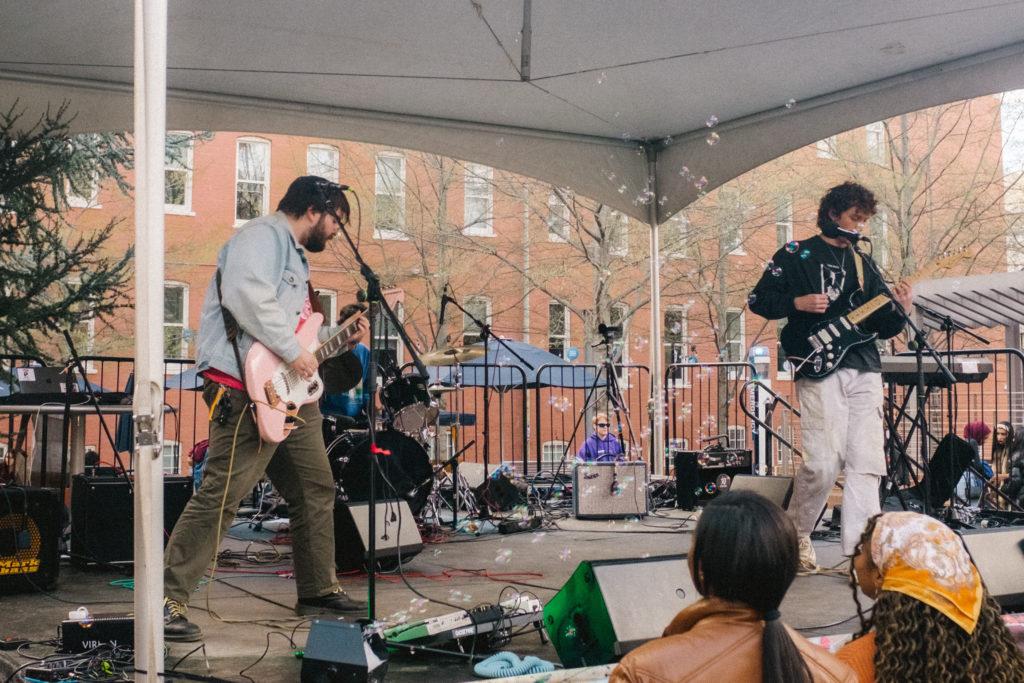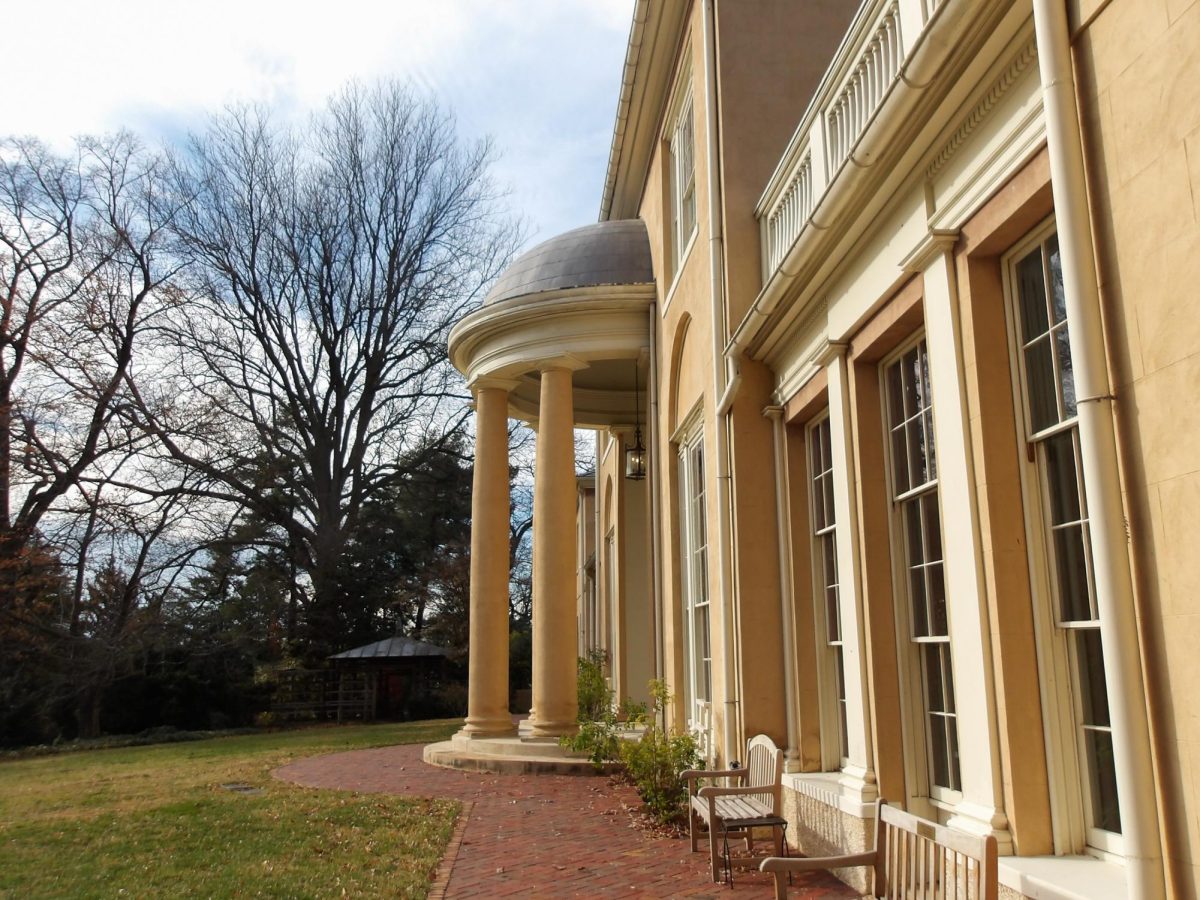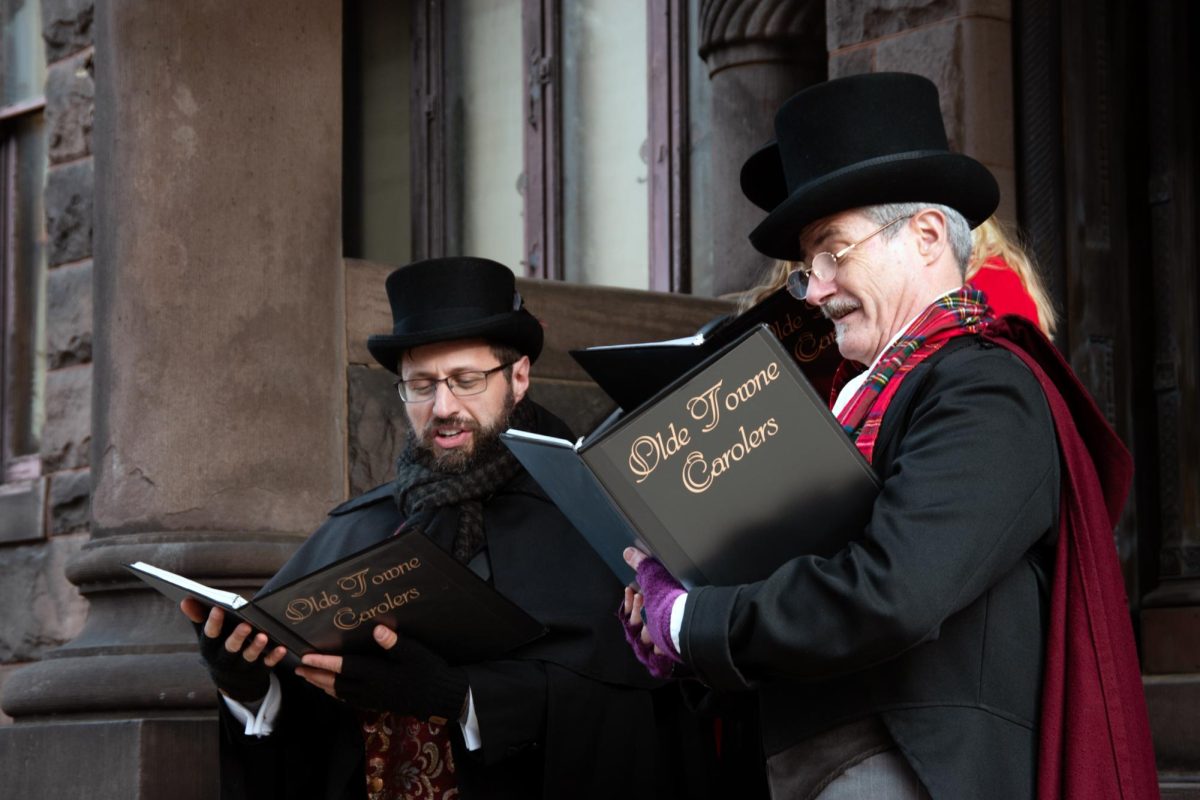Student-led music groups are conjuring up new avenues to help underground artists receive recognition and build community.
A group of four seniors is working to launch an app called Put Me On, a social media and music streaming platform for independent artists to promote their work without a label company partnership. The seniors have been developing the app since fall 2020, and the platform is currently in a limited release for beta testing before its full launch, which does not have a set release date yet.
The founders said music streaming platforms like Spotify and Apple Music neglect musicians in the making, leaving space for untapped potential to give them an accessible platform. The team said unlike other streaming platforms, PMO will offer creative ways to construct videos with snippets of songs and allow for artists to transition from creating their media to streaming their sound.
“As a company, our real goal is to connect listeners and artists in the best way possible,” PMO co-founder and economics major Sam Linder said.
The team, who first met as roommates their freshman year, came up with the idea in 2020 during their junior year. Before developing any of the media, the group decided in August 2020 to rent a house to live together in Atlanta – where some of the founders are from – and connect with other artists in the city they refer to as the “Mecca of music.”
Linder said the group was looking to make a platform more suitable and distinctive for the current market, one that “fit into a niche market that hasn’t been touched yet.”
“It developed into ‘How can we make it a platform that’s easy for artists to share their work and their music and for listeners to easily find it in a super engaging way,’” PMO co-founder Jayden Bourne said.
The team came up with the idea when senior sociology major and PMO’s Chief Innovation Officer Khari Crooms found himself on his porch one day, sharing music in a group chat with his friends, who would soon become his co-founders. Scrolling through the visuals of the text thread, Crooms thought about creating a new social platform with a fast exchange of musical ideas.
Crooms said he thinks of the platform as a communal service in which artists share their work with others who possess the same passion for creating music. The co-founders said the artists will be able to record their sound and upload it directly to the site, allowing them to take ownership of their art and “capitalize” on their creativity.
“They also have a space in which they can share and celebrate each other,” Crooms said. “I think there’s power in that, and that builds community.”
Alongside 13 other innovative groups, the team won the 2021 New Venture Competition, the largest collegiate competition in the country hosted at GW and open to students working on entrepreneurial ventures with a social and technological focus.
The founders said they helped organize a Day of the Arts festival last Sunday in Square 80, where artists – ranging from musicians like Head Case Band to the founders’ Atlanta-based musician connections – could come together and bring untapped artists “out of the woodwork.” Linder said the festival was a “culmination” of the various types of expertise they have interacted with across major cities, which brought a newfound appreciation for music on campus.
The founders said they dedicated a year of planning to the event, which drew about 500 attendees throughout the day and ultimately included interactive pop-ups, student artwork and tabling from organizations like POP! Clothing and Sunrise GW.
Platform-user Zidane Dixon, who releases music under the name iCEYDONi, said PMO is helping independent artists get their music recognized throughout the world without feeling the need to deliver a certain number of albums on a deadline with a record deal.
Dixon, who attended the festival, said the event showcased the substantive support group PMO has effectively gathered, offering “versatility” onstage across the various performances.
He said he started using the app’s beta version in 2020, which he found connected artists to resources for their craft through marketing promos, constructive criticism and potential financial assistance.
He said by prioritizing student creativity on a larger scale to share with the public, PMO has inspired his work ethic, leaving him eager to stay engaged with the platform and utilize the connections he has been searching for as an underground artist.
“The creative control – I think that’s what the main thing to grab for it [is] for independent artists,” Dixon said.
Wyatt Kirschner, a co-president of the Student Music Coalition, said he was approached by the PMO team after finishing a Halloween show featuring student musicians at the National Pan-Hellenic Council house on Townhouse Row when the co-founders asked to collaborate to plan a student music festival. He said he already knew Linder and Crooms as fellow music-makers on campus and quickly helped to organize the festival for a couple of months.
Kirschner said as a student organization on campus, SMC oversaw official budget allocation for the Day of the Arts festival from the Student Association – eventually receiving a sum of $12,695 – which they used to hire sound technicians. He said from the crowd the sound was “professional,” with loud volumes that felt like a concert.
As a member of a band himself, Kirschner performed at the festival with his upstate New York-based band Citrus Maxima, where he plays as the guitarist.
“It’s just really cool to see some of my friends and other musicians that I really love and I know have a lot of passion for what they do, like perform or sell their art,” he said.
PMO and SMC are working to create a music scene at GW that brings an array of creators together outside of the classroom space.
“I think music in particular is an interest that can really bond people, forge friendships,” Kirschner said.
Clara Duhon, Diana Crompton and Lexi Plaisted contributed reporting.








